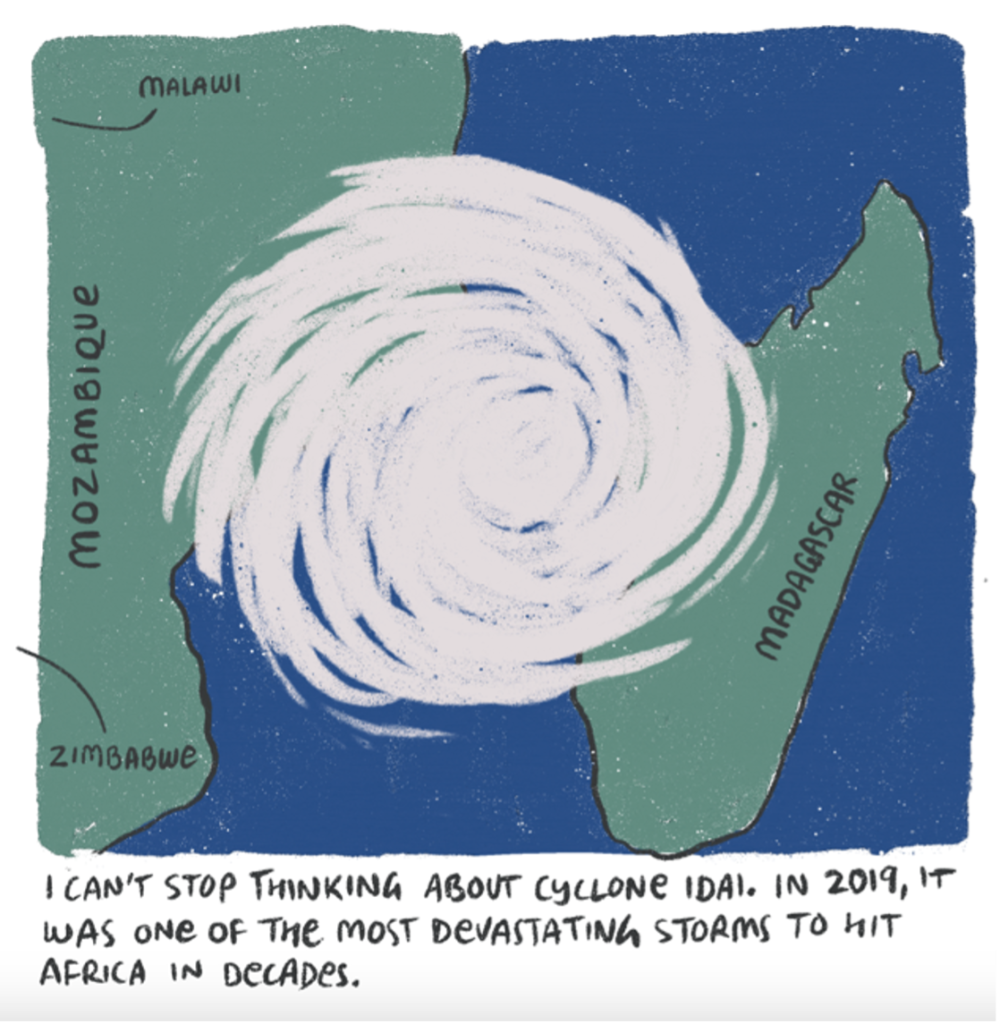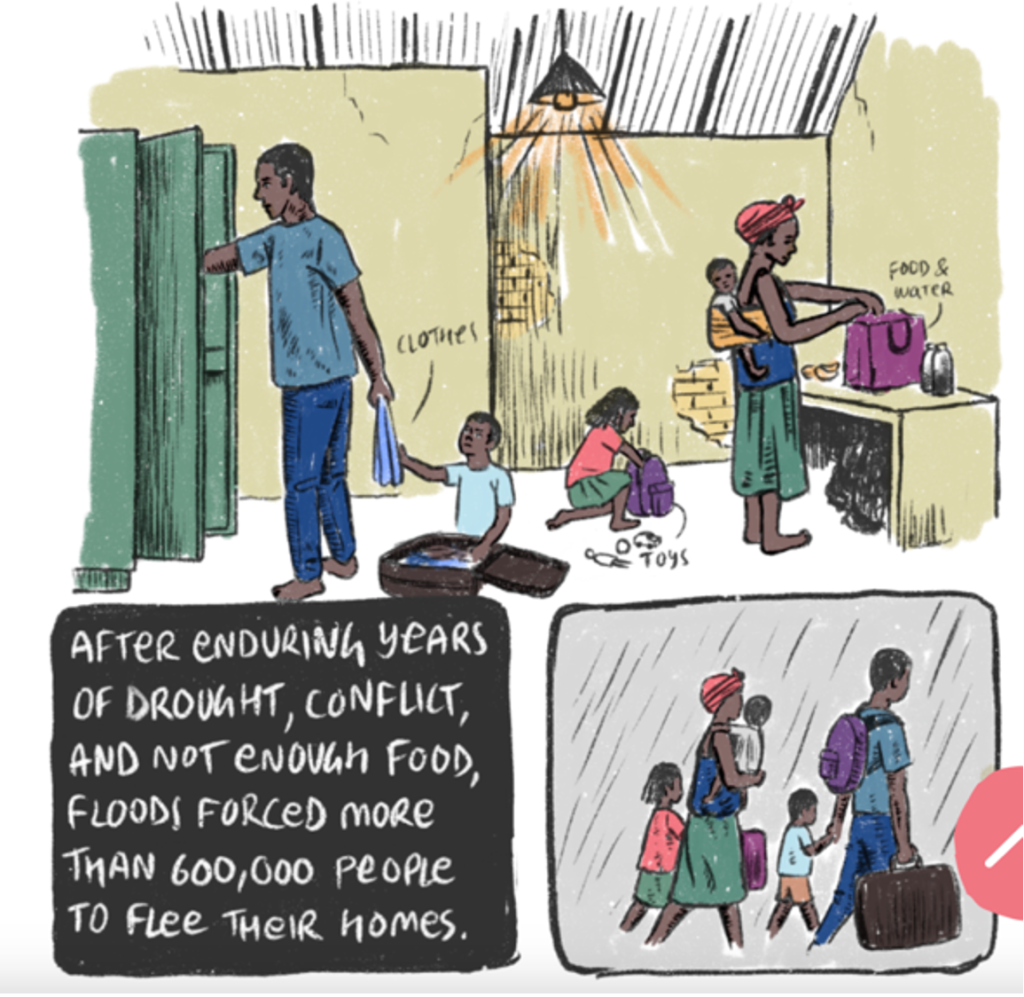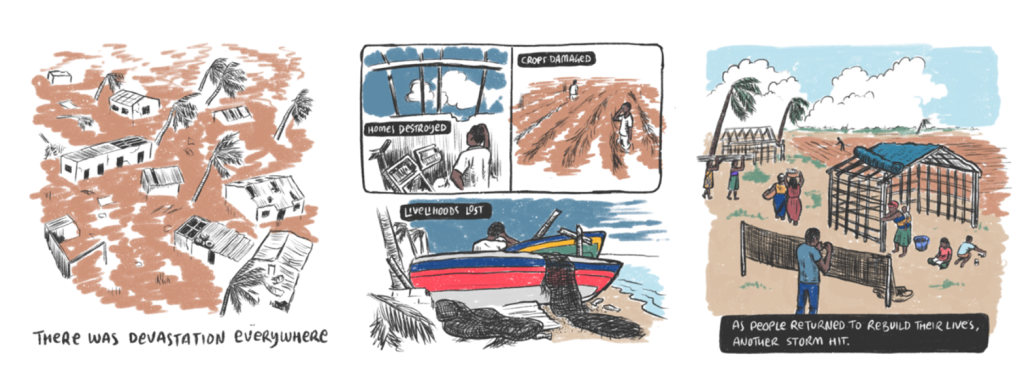Extension Activities Units 13 & 14
Units 13 & 14 – Food
- SDG 2 – Zero Hunger
- SDG 7 – Good Health and Well-being
After every 2 Units you are offered a choice of extension tasks. Depending on what area you most want to develop, choose and complete a relevant task. You are welcome to complete as many as you like.
These are not tests, and no marks are awarded. They are opportunities to develop your language further, based on a self-assessment of your needs.
NOTE: It may be that in your local context you are not able to access the videos on YouTube. They’re included here alongside other free-to-access resources, so hopefully you will still have plenty of choice.
Develop your knowledge of the SDGs
1. Test your knowledge of SDG2 & SDG7 with Go Goals digital board game
Go Goals is a ready-to-use board game developed by the United Nations that helps understand the Sustainable Development Goals, and how each of us can contribute to realising the goals. Access this link to the game and click on the white circle next to goal 2 and goal 7 and answer the set of quiz questions that appear. Check your answers when you are done.
2. Input any text into the OSDG Wheel and you will be able to see any key SDGs in the text along with their estimated relevance scores (%), followed by any additional SDGs found in the text. Try inputting one of the texts you’ve been reading in these 4 Units.
Develop your writing
In Unit 14 you learned about food loss and food waste. The climate crisis is a direct contributor to food loss, devastating crops. Read the graphic story of the natural disaster that hit Africa in 2019 and write a paragraph about the way the climate crisis is forcing people to become refugees.
Include anything relevant that you learned about the global multidimensional poverty index (MPI) in Unit 7 and the lives of young refugees in Unit 8.



2. Publish your writing
Letters to the Earth is a website where people from all over the world of all ages are submitting and sharing their letters. You can find resources to help you write a letter on the website as well as details about how to submit.
Develop your listening
Access one (or more) of the links and listen to the text. Listen once for general idea and then listen again for detail, focussing on the parts that interest you.
- Trailer for/excerpt from the film A Place at the Table, that the writing in Unit 13 is based on.
- TedEd lessons
- The Conversation podcast:
- UN video – Zero hunger
- UN report – People Globally Waste 1 Billion Tons of Food Every Year: UN Report (3.5mins)
Develop your vocabulary
Resources from BBC Learning English News Review
Develop your reading – Read for interest
Access the link and read one (or more) of the following texts. Practice your skim reading first to get a general idea of what the text is about, and then read in more detail, focussing on the parts that interest you.
Articles from The Conversation:
- Eating lots of meat is bad for the environment but we don’t know enough about how consumption is changing.
- To reduce world hunger governments need to think beyond making food cheap.
- Why global food prices are higher today than for most of modern history.
- Some people are willing to pay more for sustainable seafood: new research.
- Five insights that could move tourism closer towards sustainability
- Wearable technology can change autistic people’s lives if they’re involved in designing it
- The ‘well-being economy’ – Global population hits 8 billion, but per-capita consumption is still the main problem.
Analyse an infographic
Use the skills you have gained reading and analysing the infographics throughout Develop Your English to analyse this infographic and write a summary. Food waste: the problem in the EU in numbers (EU = European Union).
Develop your speaking
A growing body of research shows the benefits of dance for increased well-being. Dance is an engaging and fun way of exercising, learning and meeting people. A UK-based dance programme for young people aged 14 showed that one class a week for three months increased students’ fitness level and self-esteem. This was due to a combination of factors including physical exercise, a stimulating learning environment, positive engagement with peers, and creativity. You can read more in this text from The Conversation – Let’s dance: how dance classes can lift your mood and help boost your social life.
Work in pairs and plan a dance programme for adolescents in a country of your choice. Create a table like the one below and complete it with ideas, using some of the vocabulary you learned in Unit 13.
to initiate a pilot project to put mechanisms in place to roll out
to reach to phase (something) out to expand into to yield results
| Primary objectives | Details of the scheme | Expected results | Development plans | |
| Dance programme for adolescents |
|
Develop your pronunciation – /i:/ and /ɪ/
- In Unit 13 you practiced hearing the difference between short and long vowel sounds. Access this link to the Cambridge Learning English site for some more practice.
- Practice hearing the difference between the 2 sounds: ear training games.
- Practice the syllable stress in words connected to health from Cambridge Assessment.
Take action
- Access the link to the ‘Take Action Today’ site for Goal 2 and/or Goal 7 and select an action you can take in your everyday life to help meet the aims of these SDGs.
- Or choose an action from The Good Life Goals.
- Or choose an action from 170 Actions.
Play a game – FreeRice
FreeRice by the UN World Food Programme (WFP) is a free trivia game that helps end world hunger. For every question you answer correctly, the cash equivalent of 10 grains of rice is donated by a group of sponsors. The money goes to work where it’s needed most – saving and changing lives around the world. FreeRice helps you learn more about the SDGs while making a difference for people around the world. By playing FreeRice you are generating the money that supports WFP’s ongoing emergencies. 100% of all funds generated on FreeRice go to the World Food Programme. FreeRice does not earn or keep any money it raises. Since 2010 FreeRice has raised more than 210 billion grains of rice for people in need. In cash equivalent that is US $1.8 million! Join the community of 500,000 players from around the world and start making a difference today.
FreeRice is a responsive web app that can be played in any browser on desktop or mobile devices. Visit www.freerice.com to learn more and start answering questions right away. Boost your brain power while helping reach zero hunger. NB – you need to create an account to play.
Sing
Choose one (or more) of the songs to listen to. When you have listened record your response to the song. This could be:
-
- a short, written response
- a drawing
- an infographic
- a video of yourself talking about it (made on your phone)
- any other mode that allows you to respond to the song
1. ‘Hungry Freaks, Daddy’, by Frank Zappa (1966)
In this song Frank Zappa critiques America’s treatment of its hungry and homeless population. He contrasts America’s wealth with its hunger problem and describes ‘corny tricks’ that America resorts to (ways of deceiving someone that have been repeatedly used) in order to hide its poverty, which has become a hidden epidemic that needs to be addressed.
NB a ‘freak’ is an informal term for someone who is considered to be very strange because of the way they look or behave.
You can find the song here on YouTube.
2. ‘Why?’, by Tracy Chapman (1988)
This is a protest folk song from American singer-songwriter Tracy Chapman, questioning our failure to act on important social issues.
You can find the song here on YouTube.
3. ‘Human’, by Rag ‘n’ Bone Man
Go to the lyrics training website to listen to the song and practice your listening skills by filling in some of the words as you listen. You may need to click the ‘go to web’ button at the top of the screen to get started. You don’t need to create an account – just click ‘maybe later’ when you see the prompt on the screen. Try the ‘intermediate’ level (where you have to fill in 25% of the words as you listen) and if you can do that quite easily switch to the ‘advanced’ level (50%). Use the arrow keys below the video to listen again or to skip and have the word revealed if you can’t catch it.
4. ‘Everybody hurts’, by R.E.M. (1992)
The song is about the importance of asking for help as a way of supporting our emotional wellbeing. There are times when all of us need help. As the singer says ‘Don’t let yourself go, because everybody cries, everybody hurts sometimes.’
Go to the lyrics training website to listen to the song and practice your listening skills by filling in some of the words as you listen. You may need to click the ‘go to web’ button at the top of the screen to get started. You don’t need to create an account – just click ‘maybe later’ when you see the prompt on the screen. Try the ‘intermediate’ level (where you have to fill in 25% of the words as you listen) and if you can do that quite easily switch to the ‘advanced’ level (50%). Use the arrow keys below the video to listen again or to skip and have the word revealed if you can’t catch it.
Something else?
Is there something you’ve spent time studying that hasn’t been covered above? What is it? Explain in detail either in writing or as an audio file on your phone.
Use the menu bar on the left-hand side of the screen to access Unit 15.

